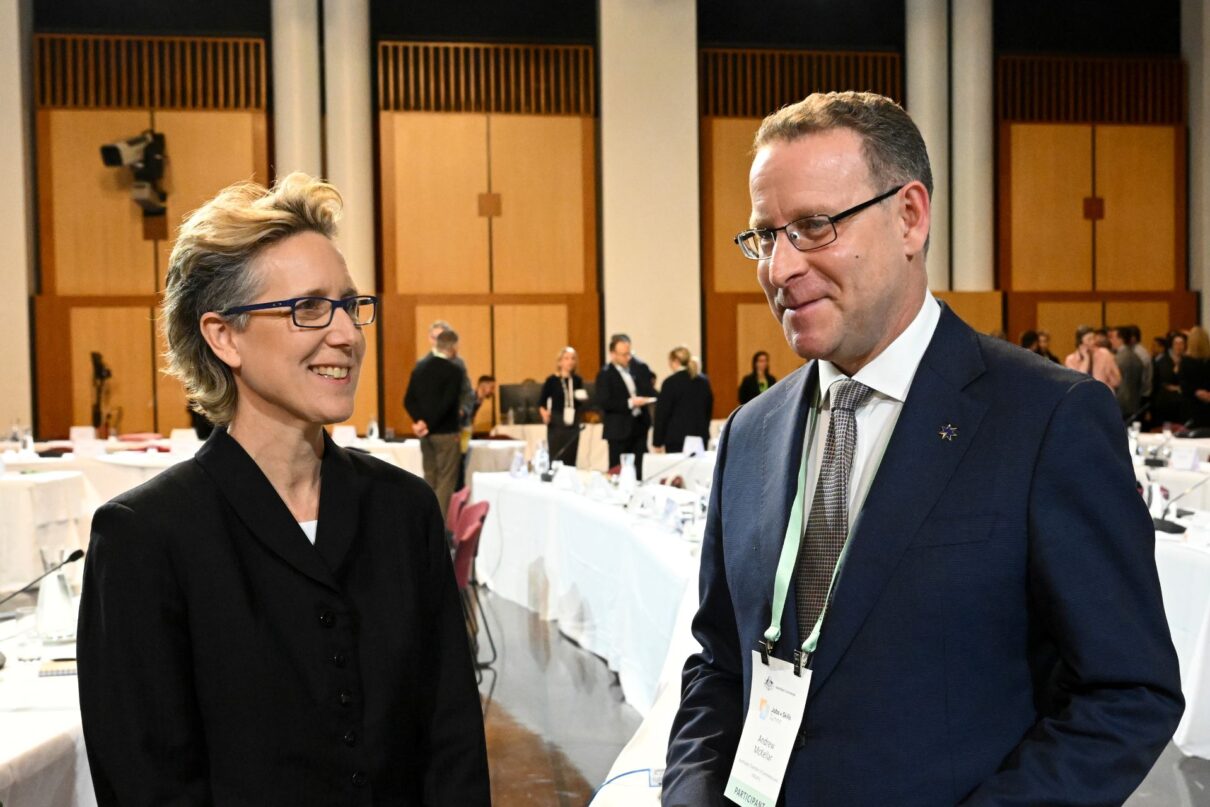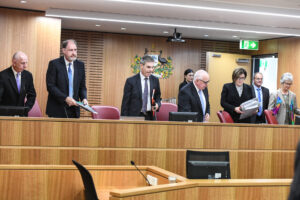“It’s a scare campaign”: award wage rise won’t trigger inflation spiral

With unions calling for a five per cent increase to award wages, business groups are crying wolf over the proposal’s impact on inflation and unemployment, says Greg Jericho.
The call from the Australian Council of Trade Unions (ACTU) comes after the Fair Work Commission announced a 23 per cent pay increase for aged care workers, a decision Jericho – Chief Economist at the Australia Institute and Centre for Future Work – said will bring the award up to around $63,000 per year.
“It’s incredibly vital work, it’s a growing sector and there are massive shortages,” he said on the latest episode of the Dollars & Sense podcast.
“One of the reasons there are these shortages is that [workers] are paid bugger all.”
“And while I still think they are chronically underpaid, especially for how important the role is…at least there is some good news.”
Business groups and commentators have argued that the ACTU’s proposal will send inflation and unemployment soaring, but Jericho said those claims don’t stack up.
“Last year, when we had the award go up by 5.75 per cent and the minimum wage go up by 8.6 per cent – again we’re told this is the end of times.
“The most recent unemployment figures, as we saw last week? They fell!”
Far from being a sign of runaway wage growth, Jericho’s analysis shows that a five per cent increase would only get real wages back to where they were in 2020.
The two per cent increase proposed by the Australian Chamber of Commerce and Industry (ACCI) would not only leave workers on an award well short of that mark, but also falling further behind inflation, which was 3.4 per cent in the 12 months to February.
The ACTU’s call for a 5% rise for Award wages will only get them back to where they were in real terms in 2020. The ACCI’s call for a below inflation rise of 2% will get them back to err… https://t.co/iwOnEw27tU pic.twitter.com/mksJlzYuaA
— Greg Jericho (@GrogsGamut) March 27, 2024
“Wages should go up more than inflation. Wages should go up more than prices,” said Jericho.
“If you can’t buy more with your wage than you did a year ago then your living standards haven’t gone up.”
While increasing wages can theoretically lead to greater demand and rising inflation, the reality is that, for decades, wage increases in Australia haven’t been anywhere near enough to set off inflation, he said.
Australia Institute research found that, between 2019 and 2022, corporate profits contributed far more than wage rises to the rapid rise in inflation.
“I can recall then-Senator Eric Abetz…during the Rudd-Gillard years saying we were about to have a wages breakout and then we went on a decade-long run of ever lower wages.
“It’s a scare campaign.”
Dollars & Sense is available on Apple Podcasts, Google Podcasts, Spotify or wherever you get your podcasts.
You might also like
The continuing irrelevance of minimum wages to future inflation
Minimum and award wages should grow by 5 to 9 per cent this year
Want to lift workers’ productivity? Let’s start with their bosses
Business representatives sit down today with government and others to talk about productivity. Who, according to those business representatives, will need to change the way they do things?
Feeling hopeless? You’re not alone. The untold story behind Australia’s plummeting standard of living
A new report on Australia’s standard of living has found that low real wages, underfunded public services and skyrocketing prices have left many families experiencing hardship and hopelessness.

